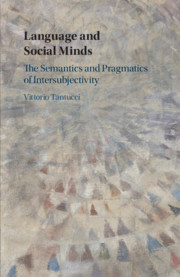5 - Concluding Remarks
Intersubjective Gradience and the New Cognitive Turn in Pragmatics
from Part III
Published online by Cambridge University Press: 26 March 2021
Summary
In this last chapter I discuss the potential impact of the intersubjective gradience model on research in Cognitive Linguistics and Pragmatics. I explicitly refer to intersubjective gradience as a schematic mechanism. Abstract representation of immediate and extended interaction contribute to the formulation of linguistic acts as much as image schemata (i.a. Lakoff 1990; Mandler 1992; Di Maggio 1997) are hypothesised to trigger metaphorical thinking and determine the morpho-syntactical structure of grammatical constructions. I then show the applicability of the gradience model in Autistic Spectrum Disorder (ASD) research and the way this usage-based framework can inform a fine-grained assessment of individuals’ ability to overtly express their awareness of an addressee’s potential reactions to what is being said. I finally summarise the main assumptions of the gradience model of intersubjectivity of this book.
Keywords
- Type
- Chapter
- Information
- Language and Social MindsThe Semantics and Pragmatics of Intersubjectivity, pp. 145 - 157Publisher: Cambridge University PressPrint publication year: 2021



